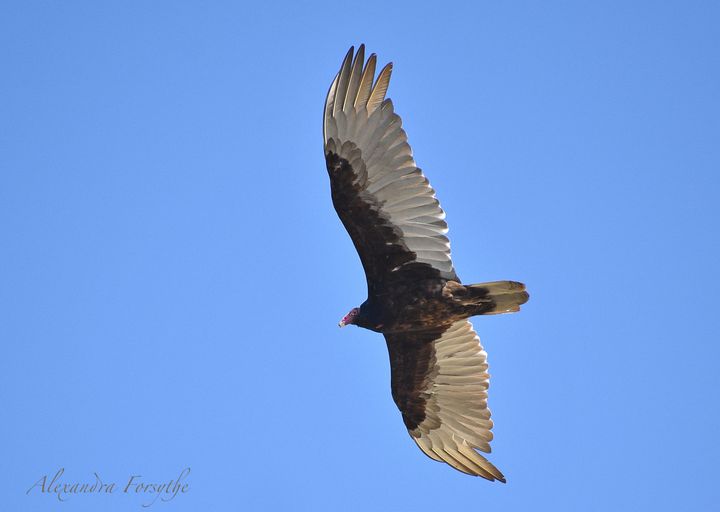Vultures are often depicted as the harbinger of death by Hollywood. Captive vultures are placed in a dead tree looking on as the protagonist is crawling across the desert or having a dramatic flashback. Vultures don't tend to care about the living; they prefer to dine on things that already died.
However, not all vultures are equally skilled at finding their meals. The turkey vulture outshines them all! A turkey vulture (Cathartes aura) can detect the smell of rotting flesh in concentrations of just a few parts per billion in the air. How can they process and detect something so faint? They have an extremely large olfactory bulb and a huge number of mitral cells.
The olfactory bulb is the area of the brain that processes odors. A recent study found that the turkey vulture's olfactory bulb is four times larger than that of the black vulture (Coragyps atratus). In addition, even though they have smaller brains than black vultures, the turkey vultures have twice the number of mitral cells. Those cells transmit information about smell to the brain. That sense of smell allows them to find something as small as a dead rat under a pile of leaves while the vulture is flying high in the air.
Thank goodness vultures can detect such things! Humans have relatively weak immune systems, so we depend on vultures to keep diseases under control. They eat carcasses that have botulism, anthrax, cholera, or salmonella before those diseases can spread further. Rather than harbingers of death, vultures are really saving us from certain doom.
How can you help vultures? When hunting, do not use lead bullets or shells, but if you do, make sure you retrieve your prey. Vultures are immune to almost everything except lead, and they do not have the ability to avoid the lead in the animal that you shot. Also, slow down when you're driving. Vultures eat a lot of road kill, but they are slow to take off when you approach. Hit the brakes. Trust me, they're worth five seconds of your time.
However, not all vultures are equally skilled at finding their meals. The turkey vulture outshines them all! A turkey vulture (Cathartes aura) can detect the smell of rotting flesh in concentrations of just a few parts per billion in the air. How can they process and detect something so faint? They have an extremely large olfactory bulb and a huge number of mitral cells.
The olfactory bulb is the area of the brain that processes odors. A recent study found that the turkey vulture's olfactory bulb is four times larger than that of the black vulture (Coragyps atratus). In addition, even though they have smaller brains than black vultures, the turkey vultures have twice the number of mitral cells. Those cells transmit information about smell to the brain. That sense of smell allows them to find something as small as a dead rat under a pile of leaves while the vulture is flying high in the air.
Thank goodness vultures can detect such things! Humans have relatively weak immune systems, so we depend on vultures to keep diseases under control. They eat carcasses that have botulism, anthrax, cholera, or salmonella before those diseases can spread further. Rather than harbingers of death, vultures are really saving us from certain doom.
How can you help vultures? When hunting, do not use lead bullets or shells, but if you do, make sure you retrieve your prey. Vultures are immune to almost everything except lead, and they do not have the ability to avoid the lead in the animal that you shot. Also, slow down when you're driving. Vultures eat a lot of road kill, but they are slow to take off when you approach. Hit the brakes. Trust me, they're worth five seconds of your time.

